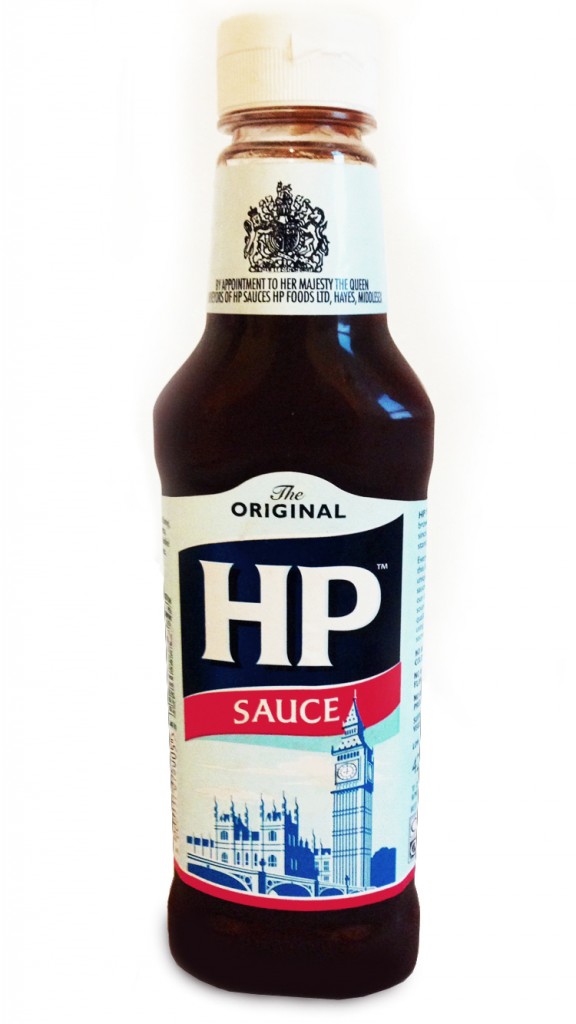Brown Sauce and honest reporting
The British are fond of a condiment called Brown Sauce. The product itself leaves me unmoved, but the thing I find interesting about Brown Sauce is that it purports nothing about itself whatsoever, other than a description of its colour. It claims no link to any known product of nature, just a factual statement about its appearance. Consider, for instance, tomato ketchup. If an independent lab discovers that a ketchup is, in fact, only 5% tomato and 95% starch, sugar, salt, and flavor enhancer 621, people will be justifiably irate about the “tomato” claim. If, on the other hand, Brown Sauce is eventually proven to be made from asbestos and drowned kittens, the manufacturers can quite rightly state that they only said it was brown.
The same kind of plain speech is often missing in surgery. The truth has often been a casualty in the patient consent process due to a combination of ignorance, fear, avarice, or ego on the part of the surgeon. Whatever the motivation, when we explain rates of risks and benefits to the patient before us, many of us are not giving an honest report of our own outcomes. In the case of the battle between robotic and open radical prostatectomy, for example, real-world complication rates are often ignored in favour of Walsh’s rates on one side, and Patel’s on the other. Surgeons are certainly not all the same. If you have ever considered who you would allow to perform surgery on yourself the chances are you have written a very short short-list. When we tell a patient that the rate of complication x from procedure y is only 5% and we have not audited our own outcomes, we are likely giving the rates produced by the high-volume specialist centres that had the expertise, numbers, and clout to get their rates published in a reputable journal. Most surgeons do not work in those centres.
There is an on-going debate on whether hospitals should be compelled to publish their procedure-specific outcome data, so that the public can make informed decisions about their surgical care. I think this misses the point. Yes, there are potential hazards to compulsory publishing; centres of excellence may have worse outcomes than others due to operating on the sickest patients with the slimmest hopes of success, one major complication in a lower volume centre can skew the data, and there is the potential to develop a culture of suspicion and dishonesty, but the real point is more personal. We should honestly report to the patient in front of us from our own results as a matter of honesty and ethics, regardless of hospital policies. We can then (hopefully) reassure them that our outcomes are comparable to those published, and they can expect good quality care from us. If we cannot reassure them of this, our audit process will inform us of our shortcomings and we can seek to address them. We might even consider leaving certain procedures to a colleague who is better at it than us. A bitter pill, maybe, but arrogance is the enemy of improvement.
It can be a nuisance to collect and collate operative data. It can be painful to discover that we are not as good at something as we had assumed. Thankfully surgeons are mature adults who can take these challenges on the chin, and use the results to make our patient care better. Can’t we?
Otherwise, the information we give our patients is “pork-pies”, which is Cockney rhyming slang for lies, and no amount of Brown Sauce can make those pies palatable.
James Duthie is a Urological Surgeon/Robotic Surgeon. Interested in Human Factors Engineering, training & error, and making people better through electronic means. Melbourne, Australia @Jamesduthie1





Great writing Jim. The quantification and qualification of risk as part of the consent process is a key part of the patient surgeon relationship.
You’re very kind, but this blog was more about sauce.
Hi Jim
Important to decide what the brown sauce is an accompaniment to.
As we have a small canteen within our operating room complex, I sometimes have a couple of hash browns with a dash of brown sauce before my operating list.
I shall remember this blog of yours the next time I am doing so. Indeed so should most surgeons.
A very enjoyable read. HP sauce gets my vote.
From a outcomes reporting perspective, of course everyone should quote their properly audited outcome figures. But, it works both ways … For PCNL I quote a risk of nephrectomy as 1 in 1000. Why? It has never happened to me (yet) so should I say 0%. No – I use the literature standard – but aren’t we using our own figures? Maybe because it’s a rare complication that’s why I quote that and it won’t be until the end of my career that I can truly quote accurate figures.
Casemix is also a confounder as well as you discuss … as is publication bias – poor outcomes don’t get reported – only the good stuff. Patients won’t understand those issues of course when they read online about success rates / very short hospital stay / no complications etc. Maybe it’s time for the hospitals and healthcare systems to supply well collected data on all our procedures, stratified for case mix etc. Or surgeons collect their own data but get audit inspections rather like tax inspections. Only then will we know that the best are truly the best and where we stand in the pecking order. Maybe it’s not as black or white as you think … and maybe brown is in fact a good analogy!!
Great writing. I loved it. The sauce is great too in corned beef hash. Try it.
The brown sauce isn’t quite so stripped down. Take a look at the bottle. Look for the visual cues which attest to quality… The name HP – Houses of Parliament sauce. A picture of the Palace of Westminster – a sauce for power brokers and people of influence, a sauce fit for the highest of high tables. the sauce may be silent i.e. brown but the packaging shouts loud.
Patients make decisions on visual cues too. The hospitals reputation (the brand); the admin; the facilities; the research; the staff. Does everything about this place and these people suggest they get things right. They are peripherals but peripherals matter.
The quoting of others results is clearly absurd. I’m not Phil Mickelson. I don’t quote his scores. After all it’s me swinging the clubs….
Prokar – I’d be worried about Brown Sauce impairing my ability to operate! Thanks for the comment.
Matt – Interesting point, if a complication hasn’t happened to you (yet), your rate is in fact 0% for that complication. The overarching principle is honesty, and by way of analogy, if I consent my passengers to a car journey where I will be the driver there would be two distinct components; There is the relatively common/expected stuff that maybe happens at a rate of 5% or more; risk of being stuck in traffic, risk of back seat passengers suffering nausea during the winding bits, risk of speeding ticket. I can more or less give a rate of these complications from my driving history. The second component is the tricky one. I have never been involved in a fatal accident, but it would be dishonest to say that the risk of this to passengers is zero. It certainly does happen, just not to me yet. A part of the consent process must involve the “worst case scenario”, the things we may or may not have seen, that are “rare” and maybe that’s the best percentage risk we can offer.